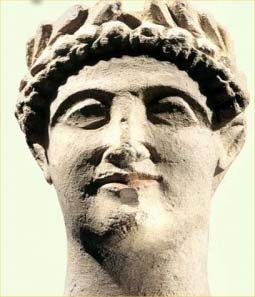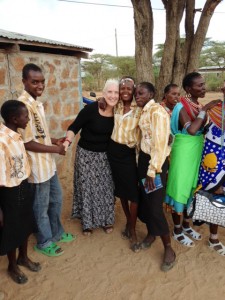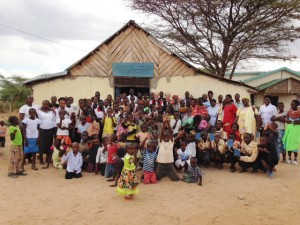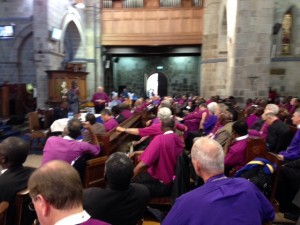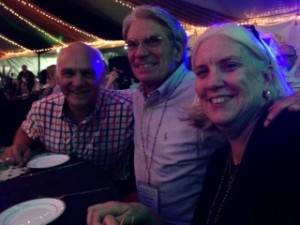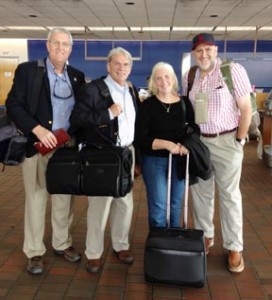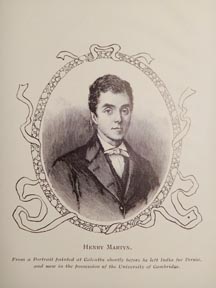 I read once — but cannot remember where — a children’s story of a king who had an infestation of mice in his palace. He went to his counselors who advised him to hire some cats. Soon the cats cleared the palace of the mice but the cats multiplied. He returned complaining about his infestation of cats. So his wise men counseled him to get some dogs. Well the dogs soon supplanted the cats, sleeping upon the king’s bed and being a general nuisance—howling at night and barking at his guests. So returning again to his counselors to get rid of the dogs they all agreed that lions would scatter the dogs—which of course they did. But before long the lions were lounging on the beds and couches and eating his store of fine meats. “What am I to do now?” he quizzed his wise men? They said, “Get some elephants!” Well the elephants drove out the lions but then they played havoc with his Great Room and hallways, leaving unseemly droppings and crushing furniture. “Now what?” he asked his advisers. “Bring in some mice” said the wise men, “they will scare the elephants away!” Far too often we try to deal with our problems with solutions that only lead to other problems and we end up back with the mice because we never bothered to ask the question, “Why are the mice in the palace in the first place?”
I read once — but cannot remember where — a children’s story of a king who had an infestation of mice in his palace. He went to his counselors who advised him to hire some cats. Soon the cats cleared the palace of the mice but the cats multiplied. He returned complaining about his infestation of cats. So his wise men counseled him to get some dogs. Well the dogs soon supplanted the cats, sleeping upon the king’s bed and being a general nuisance—howling at night and barking at his guests. So returning again to his counselors to get rid of the dogs they all agreed that lions would scatter the dogs—which of course they did. But before long the lions were lounging on the beds and couches and eating his store of fine meats. “What am I to do now?” he quizzed his wise men? They said, “Get some elephants!” Well the elephants drove out the lions but then they played havoc with his Great Room and hallways, leaving unseemly droppings and crushing furniture. “Now what?” he asked his advisers. “Bring in some mice” said the wise men, “they will scare the elephants away!” Far too often we try to deal with our problems with solutions that only lead to other problems and we end up back with the mice because we never bothered to ask the question, “Why are the mice in the palace in the first place?”
Ash Wednesday is a day set aside by the church to ask the question and deal with the problem of the mice in the palace—or rather, I should say, the problem of sin— sin in the heart. Sin, in Christian teaching, is not primarily what we call wrong doings. These are sins. Sin in the singular refers to the deeper problem of our wrongness—or “bentness”—which is all wrapped up with our wrong relationship with God, which is at the heart of our sins. How we deal with this problem of our sin—which leads to the sins we do, both sins of commission and those things which we don’t do that we ought to do, sins of omission—is really the heart of the matter.
The Ash Wednesday liturgy is a rite and ceremony designed to help us glimpse the depth and pervasiveness of sin in our lives. The lessons read, the sermon preached, the ashes on the forehead, Psalm 51, the confession of specific sins in the Litany of Penitence, even the choir anthems; all direct us toward the mercy of God. What the liturgy alone cannot do, however, is get at our hearts—that is, why the mice are in the palace—why sin is in the heart. And this is quite another story: it is the story of the fall: or as Archbishop George Carey once wrote, of our being Nature’s riddle, God’s problem children.
Somehow we too often convince ourselves that if we are just decent people, do our jobs, are polite and nice to others, reasonable in our thinking, care for the environment, practice good manners, read the right books, are not too selfish and perhaps go to church, we ought to get on quite well in life—be it marriage, family, or career. And from this perspective we may choose some Lenten disciplines, much like choosing a New Year’s resolution, and off we go feeling better about our life with God, for awhile, hardly realizing we’ve not addressed why the mice are in the palace. Frankly, I don’t mean this as a severe indictment. After all, I don’t think we are all that different from the Israelites whom the prophet Joel was addressing in the First Lesson for the day (Joel 2:1-2, 12-17).
“Blow the trumpet in Zion. Sound the alarm on my holy mountain…Sanctify a fast…Call a solemn assembly…Let there be sack cloth and lamentation.”
The army of locusts marching through their land, devouring their fields, leaving their orchards barren of fruit and leaf is an army sent by God. He has sent it to eat up their prosperity so that the barrenness of their landscape may help them to see the emptiness of their souls—the barren inscape of their spiritual imaginations. For the depravation of their spiritual lives has preceded this plague—and all was sent in mercy that they might know their hearts have been far from God. C. S. Lewis once noted, “God speaks in our conscience, but shouts in our pain; it is the megaphone to rouse a deaf world.”
So the prophet Joel was God’s spokesman calling for a day of repentance. He called for a solemn assembly. Put on sackcloth. Fast. Notice that he doesn’t speak against the external ceremonies and rituals of religion. He knows that there is a place for them in Israel’s life with God—just as there is a place for our ashes, our litanies and all the outward disciplines of Lent. But he does not leave it there. He goes after the hearts of his people. “Rend your heart” he cries “and not your garments.” Tearing one’s clothing in ancient Israel was a common practice in times of grief, sorrow, repentance and guilt. But now, says Joel, this alone is not sufficient. It will be too much like bringing cats in to deal with the mice and dogs to deal with the cats…. No, he says, tear your heart not just your clothing. As the psalmist put it, “The sacrifice of God is a troubled spirit; a broken and contrite heart, O God, you will not despise.” (Psalm 51:18)
The thing we need to remember as we try to get at this problem of sin is that it is very hard to get at it at all. There is so much that protects it from our inner eyes. The axiom of the Reformers is apropos here: “What the heart desires, the will chooses, and the mind justifies.” When we try to get at the motives of the heart, the mind and will are forever getting in the way justifying ourselves. These are like layers of garments swirling around the heart of our sin. But in Christ we can pray that through the work of the Holy Spirit, who convicts our hearts of sin; the liturgy’s use of Psalm 51 and the Litany of Penitence’s brutal naming of sins; and with the Scripture’s constant entreating us to turn to God’s mercy and forgiveness; these will rend or tear through the layers and layers of these garments eventually leaving the sinful heart revealed that we might by grace turn and look to Jesus Christ—to his cross and death. St. Paul’s letter assigned for today reminds us of this. “For our sake he [God] made him [Christ] to be sin who knew no sin, so that in him we might become the righteousness of God.” (2 Cor 5:21) He reminds us that the heart of our need is nothing less than the Cross; God’s forgiving love, his reconciling work and grace. Nothing else will do. For once the sin in the heart is revealed and his forgiveness received, the transforming work of God’s Spirit begins to tune our lives. And from here, through Divine-human cooperation, even the disciplines of the Spiritual life (as enumerated in the Ash Wednesday liturgy, see BCP, p. 264) may be of service. But we must get the order correct. Begin with the Lenten disciplines and we will go awry every time—going from infestation of mice to cats to dogs to lions to elephants and back to mice again. Begin and remain in a grace-filled repentance that yields a torn and contrite heart and God’s grace shall abound. Then we may seek God’s guidance about self-denials and devotionals and whatever else we find to mark our mortal nature in grace. Yet we dare not side step the word of apostolic proclamation—“We implore you on behalf of Christ, be reconciled to God.” (2 Corinthians 5:20)



